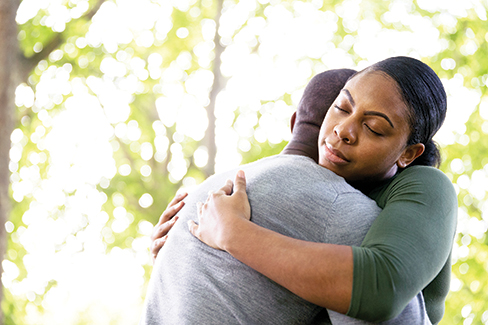People often associate post-traumatic stress disorder (PTSD) with active duty service members and veterans who’ve lived through unthinkable situations. The reality, however, is that anyone who has suffered or witnessed a shocking, scary or dangerous event can develop PTSD.
In fact, an estimated 8 million people in the U.S. have the condition. PTSD occurs when you experience trauma and continue to feel its effects long after the incident took place. Any traumatic event can cause PTSD, but some of the most common triggers include sexual assault, accidents, injuries and natural disasters. You may feel stressed or frightened even though you’re no longer in any danger.
Other symptoms of PTSD include:
- Experiencing flashbacks along with physical symptoms, such as a racing heart or sweating
- Having bad dreams or trouble sleeping
- Avoiding places, events or things that remind you of the traumatic incident
- Being startled easily
- Losing interest in activities you used to enjoy.
Many of these symptoms are common — and to be expected — after going through a scary or dangerous situation. Typically, they last for a few weeks and then gradually resolve on their own. But if your symptoms continue for more than a month and impact your everyday life, you could have PTSD. The condition often goes hand-in-hand with depression, substance abuse or an anxiety disorder.
What You Can Do
If you think you may have PTSD, make an appointment with a mental health provider who is experienced with the disorder. Not sure where to go for help? Ask your family healthcare provider who they recommend. If you’re diagnosed with PTSD, treatments are available.
Take Care of Yourself
As difficult as it may feel at times, try to hold on to the hope that you can get better. In addition to working with a mental health professional, you can take a few steps to help yourself on a day-to-day basis. For example:
- Exercise to help relieve some stress.
- Break big tasks into smaller, more manageable ones so they don’t feel as overwhelming.
- Spend time with a trusted friend or relative and talk about what you’re experiencing.
Try to find situations, places and people that feel comforting to you. - Remember that with time and treatment, you can get through this.
Team approach for treatment
The Columbus Regional Health Adult Mental Health Treatment Program specializes in treating adults 18 and older who are experiencing acute mental illness. For more information on our mental health services, call 812-376-5811.



